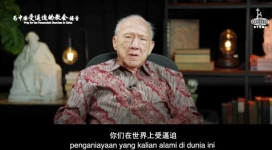University of Texas scientists are currently developing a new anti-obesity treatment that destroys the blood supply to fat tissue. While still in its early stages of development, the drug shows great promise, as mice fed a high-fat diet lost 30% of their body weight in just four weeks on the treatment.
The study, published in the journal Nature Medicine, used a treatment similar to a new class of anti-cancer drugs called angiogenesis inhibitors which starve tumors by cutting off their blood supply.
Cuts off fat cells’ ‘food supply’
In the human body, fat cells are connected to tiny capillaries, giving them a significant supply of blood. The researchers identified a protein (prohibitin) that recognizes fat cells and helps construct the network of these blood vessels that feed them. Scientists then made the protein lethal by attaching it to another protein that triggers the cells in the blood vessels to self-destruct.
The modified combination proved to be highly effective at eliminating fat tissue by cutting off its blood supply and effectively starving it to death. When tested on mice, the subjects ate less food and seemed to have an increased metabolic rate.
The animals also seemed to tolerate the treatment well, showing few signs of side effects.
More tests needed
However, it is known that loss of fat cells can have detrimental effects, such as the accumulation of fat in non-fat tissue. Researchers also warned that successes in animal tests don’t always map onto human ones. The next phase will be to test the treatment on baboons, which gain weight in a similar manner as humans.
Reference:
1. W. Arap, Chan, L., Kolonin, M.G., Pasqualini, R., Saha, P.K., “Reversal of Obesity by Targeted Ablation of Adipose Tissue,” Nature Medicine, 09 May 2004, doi:10.1038/nm1048.







